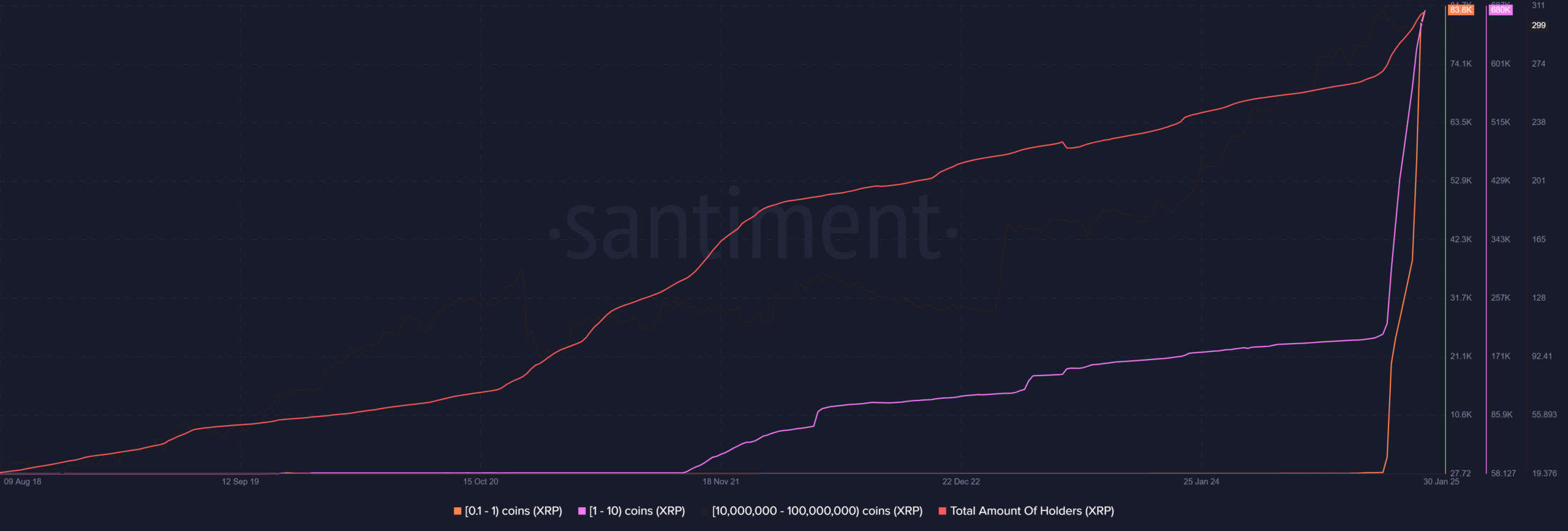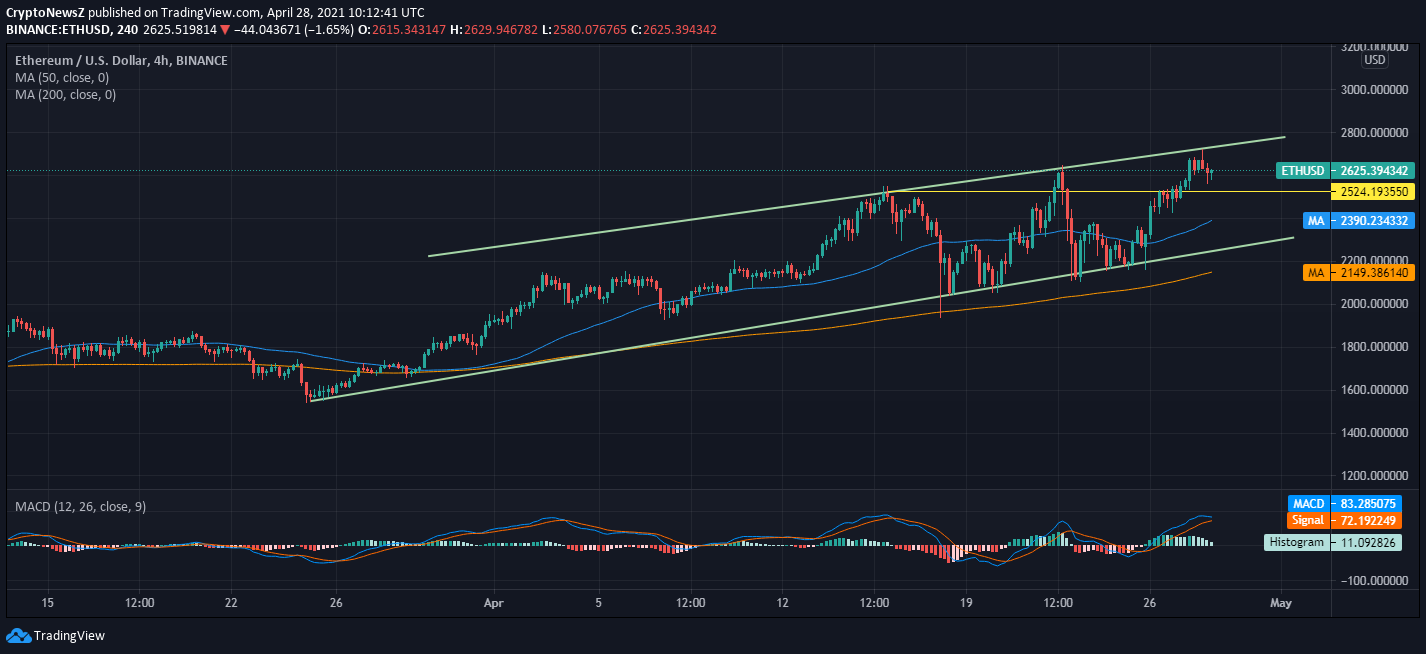Navigating The Great Decoupling: Challenges And Opportunities

Table of Contents
The Great Decoupling refers to the growing economic and technological separation between different countries or blocs. This separation isn't simply a reduction in trade; it's a fundamental shift in geopolitical alignments, technological dependencies, and supply chain structures. It's a complex process driven by a confluence of factors, including rising trade protectionism, geopolitical tensions, and a desire for greater technological independence. This article aims to dissect these complexities and illuminate the path toward successfully navigating the risks and rewards inherent in this global shift.
Geopolitical Challenges of the Great Decoupling
The Great Decoupling presents a series of formidable geopolitical challenges. The shift away from globalization necessitates a reevaluation of international relations and risk management strategies.
Increased Trade Tensions and Protectionism
The rise of protectionist policies and trade wars is a defining feature of the Great Decoupling. Countries are increasingly prioritizing domestic industries through tariffs, sanctions, and other trade barriers.
- Examples: The US-China trade war, the ongoing tensions between the EU and the UK post-Brexit, and various regional trade disputes illustrate the escalating trend of protectionism.
- Impact: These trade disputes disrupt global supply chains, increase production costs, and limit consumer choice. Businesses reliant on international trade face increased uncertainty and the need for complex risk mitigation strategies. The imposition of tariffs, for example, directly impacts pricing and profitability. Sanctions can severely limit access to key markets or resources.
Fragmentation of Technology and Innovation
Technological decoupling is another critical aspect of the Great Decoupling. Countries are striving for greater technological independence, particularly in strategic sectors like semiconductors and artificial intelligence (AI).
- Impact: This fragmentation can hinder innovation by limiting the cross-border flow of ideas and technologies. The semiconductor shortages experienced in recent years highlight the vulnerabilities created by technological dependence on specific countries or regions. The race to develop advanced AI capabilities is also becoming increasingly nationalistic.
- Risks: Over-reliance on a single source for critical technologies creates significant risks, necessitating diversification and investment in domestic technological capabilities.
Increased Geopolitical Instability
The economic decoupling process contributes to increased geopolitical instability. Economic factors are increasingly intertwined with political relations, making economic competition a driver of conflict and tension.
- Impact: The potential for escalation in trade disputes, the competition for resources, and the shifting alliances all contribute to a more unpredictable and volatile global landscape. Geopolitical risk assessment has become significantly more complex.
Economic Opportunities of the Great Decoupling
While the Great Decoupling presents challenges, it also unlocks significant economic opportunities. The shift towards regionalization and diversification opens doors for businesses willing to adapt.
New Market Opportunities and Growth
The fragmentation of global supply chains creates new market opportunities in emerging markets and within regional economic blocs.
- Benefits: Businesses can diversify their markets, reducing dependence on single regions and mitigating risks associated with geopolitical instability. Regional trade agreements are becoming increasingly important.
- Examples: The growth of the ASEAN economic bloc and the increasing economic influence of African nations present significant opportunities for businesses.
Reshoring and Nearshoring Initiatives
The desire for greater supply chain resilience is driving reshoring (returning production to the home country) and nearshoring (moving production to nearby countries) initiatives.
- Benefits: These strategies can reduce transportation costs, improve supply chain responsiveness, and create domestic jobs. However, they may also lead to higher production costs.
- Impact: Government policies supporting reshoring and nearshoring play a crucial role in shaping the economic landscape of different regions.
Innovation and Technological Advancements
The need for technological independence is spurring innovation and the development of new technologies and processes.
- Benefits: Countries are investing heavily in research and development to reduce their reliance on foreign technology. This investment can lead to breakthroughs in various sectors and improve national competitiveness.
- Examples: Investments in domestic semiconductor manufacturing and the development of alternative supply chains for critical technologies.
Strategies for Navigating the Great Decoupling
Successfully navigating the Great Decoupling requires proactive strategies focused on resilience and adaptability.
Diversification of Supply Chains
Building resilient and diversified supply chains is paramount. Businesses should reduce their reliance on single suppliers and geographic locations.
Investing in Domestic Production
Boosting domestic manufacturing and production capabilities enhances national security and economic independence.
Strategic Partnerships and Alliances
Forging strong relationships with reliable partners and allies is crucial for navigating geopolitical complexities.
Adapting to Geopolitical Shifts
Businesses must proactively monitor and adapt to evolving geopolitical landscapes, anticipating potential disruptions and adjusting strategies accordingly.
Understanding and Mastering the Great Decoupling
The Great Decoupling presents both significant challenges and substantial opportunities. Understanding the geopolitical and economic implications of this global shift is critical for businesses and nations alike. Proactive strategies focused on supply chain resilience, diversification, and strategic partnerships are essential for effectively navigating this complex landscape. To master the Great Decoupling, businesses must invest in research, adapt to changing geopolitical realities, and embrace the opportunities presented by new markets and technological advancements. Further exploration of regional trade agreements and emerging market dynamics will be crucial for preparing for the Great Decoupling and capitalizing on its potential.

Featured Posts
-
 Institutional Ethereum Accumulation Cross X Indicators Point To Potential 4 000 Breakout
May 08, 2025
Institutional Ethereum Accumulation Cross X Indicators Point To Potential 4 000 Breakout
May 08, 2025 -
 The Trump Effect On Cryptocurrency Analyzing The Xrp Price Movement
May 08, 2025
The Trump Effect On Cryptocurrency Analyzing The Xrp Price Movement
May 08, 2025 -
 Ethereum Price Prediction 2 700 On The Horizon
May 08, 2025
Ethereum Price Prediction 2 700 On The Horizon
May 08, 2025 -
 400 Xrp Price Jump Investment Opportunities And Risks
May 08, 2025
400 Xrp Price Jump Investment Opportunities And Risks
May 08, 2025 -
 Analisis Del Estado De Salud De Central Cordoba En El Gigante De Arroyito
May 08, 2025
Analisis Del Estado De Salud De Central Cordoba En El Gigante De Arroyito
May 08, 2025
Latest Posts
-
 Andor Season 1 Where To Stream Episodes 1 3 Hulu And You Tube
May 08, 2025
Andor Season 1 Where To Stream Episodes 1 3 Hulu And You Tube
May 08, 2025 -
 Andors First Look Everything We Hoped For And More In The Star Wars Universe
May 08, 2025
Andors First Look Everything We Hoped For And More In The Star Wars Universe
May 08, 2025 -
 Watch Andor Season 1 Episodes 1 3 Hulu And You Tube Streaming Options
May 08, 2025
Watch Andor Season 1 Episodes 1 3 Hulu And You Tube Streaming Options
May 08, 2025 -
 Andor First Look Delivers On Decades Of Star Wars Teases
May 08, 2025
Andor First Look Delivers On Decades Of Star Wars Teases
May 08, 2025 -
 Andor First Look A 31 Year Old Star Wars Mystery Solved
May 08, 2025
Andor First Look A 31 Year Old Star Wars Mystery Solved
May 08, 2025
